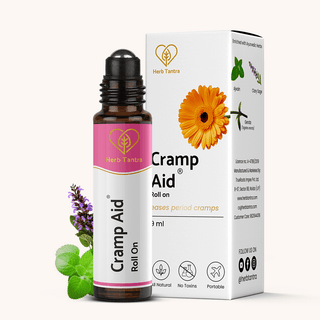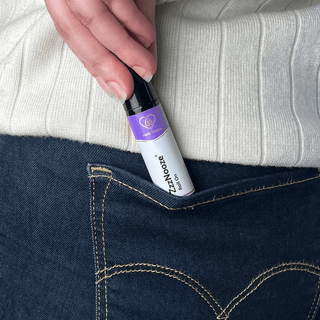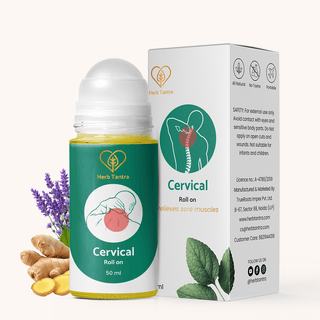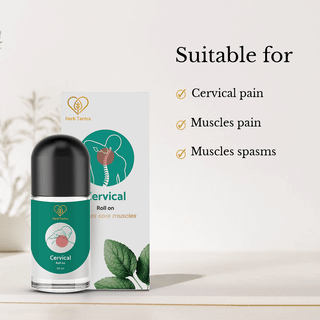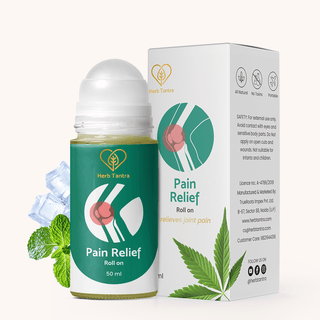Migraines are more than just bad headaches—they’re a complex neurological condition that millions of people struggle with daily. While lifestyle factors like stress, diet, and sleep play a big role in triggering migraine attacks, many people wonder - are migraines hereditary? The short answer is yes, genetics do play a role, but the full picture is a mix of both nature and nurture.
In this blog, we’ll explore how migraines run in families, what role your genes play, how to distinguish migraines from other headaches, and the natural remedies that can help you manage migraine pain more effectively.
What causes migraines, and how are they different from regular headaches?
A regular headache—like a tension headache—often feels like a dull, steady ache across the forehead or scalp. Migraines, on the other hand, are much more intense. They can cause throbbing pain (often on one side), sensitivity to light and sound, nausea, and even visual disturbances called auras.
While exact causes are still being studied, genetics, abnormal brain activity, and imbalances in brain chemicals like serotonin are often linked to migraine headaches. If one or both of your parents have migraines, you’re more likely to experience them too.
Are migraines hereditary or linked to genetics?
Studies show that up to 60% of migraine sufferers have a family history of the condition. Specific genes may affect how the brain processes pain signals and reacts to triggers such as stress, hormonal changes, or lack of sleep. This doesn’t mean migraines are guaranteed if your parents had them—but it does mean you may have a higher risk.
Even though migraines can “run in the family,” lifestyle habits play a huge role in how often you get them. For instance, skipping meals, dehydration, or irregular sleep patterns can turn genetic susceptibility into actual migraine attacks.
How can I tell if my headache is a migraine or something more serious?
It’s common to confuse a severe tension headache with a migraine. If your headache comes with nausea, vomiting, light sensitivity, or visual changes, it’s more likely a migraine. But if your pain is sudden, extremely severe, or accompanied by other worrying symptoms like weakness or slurred speech, it’s important to see a doctor immediately to rule out other serious conditions.
For day-to-day headaches and migraines, many people find relief through natural, non-invasive options like essential oil roll-ons or hot/cold compress therapy. Herb Tantra’s Migraine Go Roll On is a gentle blend of lavender, peppermint, and rosemary oils that works on the temples and forehead to ease pain naturally. For more intense migraine pain, the Migraine Go X Roll On—with wintergreen, chamomile, and eucalyptus—offers stronger relief.
How does poor sleep quality affect migraines?
Sleep is deeply tied to migraine frequency. Irregular sleep, late nights, or poor-quality rest can disrupt brain chemistry and trigger headaches. In fact, many migraine sufferers report their attacks come after a night of restless or insufficient sleep.
Creating a calming bedtime routine, limiting screen time, and using relaxation techniques like yoga or deep breathing can support better rest. If you wake up with frequent morning migraines, it’s worth looking at your sleep patterns closely. A hot or cold therapy tool like the Migraine Go Cap can be particularly helpful here—it not only blocks out light but also offers soothing compression therapy that relaxes tense head and eye muscles.
Can lifestyle changes really help prevent migraines?
Yes—everyday habits make a big difference. Even if you have a genetic tendency, lifestyle adjustments can reduce the frequency and severity of migraine headaches. Some effective natural migraine prevention tips include -
- Staying hydrated - Dehydration is a common migraine trigger.
- Eating regular meals - Skipping meals can trigger blood sugar fluctuations that set off migraines.
- Identifying food triggers - Cheese, caffeine, alcohol, and processed foods often appear on migraine trigger lists.
- Practicing relaxation techniques - Yoga, meditation, and mindful breathing can reduce stress-related migraines.
- Using natural remedies - Herbal blends like peppermint or lavender oil have shown to calm tension headaches naturally.
The bottom line
Migraines may be hereditary, but your lifestyle and environment shape how often they happen. By recognizing triggers, supporting your body with healthy routines, and using natural tools like Herb Tantra’s Migraine Go Roll Ons and Migraine Go Cap, you can regain more control over migraine pain and prevent frequent attacks.
FAQs
1. Are migraines hereditary or caused by lifestyle factors?
Migraines are influenced by both genetics and lifestyle. While family history raises your risk, stress, diet, and sleep patterns also play a big role.
2. What are the early signs of a migraine headache?
Typical migraine symptoms include throbbing head pain, nausea, sensitivity to light or sound, and sometimes visual disturbances known as aura.
3. How can I reduce migraine attacks naturally?
Hydration, balanced meals, stress management, and natural remedies like essential oil roll-ons or hot/cold compress therapy can reduce migraine frequency.
4. Can overuse of painkillers make migraines worse?
Yes, overusing pain medications can lead to rebound headaches or chronic migraine. Natural solutions are a safer long-term option.
5. What natural remedies are best for migraines?
Peppermint, lavender, and chamomile oils, along with hot/cold compression therapy, yoga, and proper sleep hygiene, are effective for managing migraine pain.






